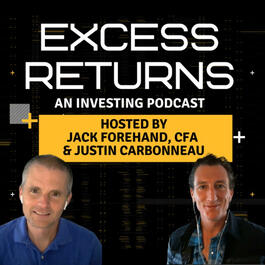
Defined outcome ETFs have exploded in popularity, offering investors a way to combine downside protection with upside participation. In this episode of Excess Returns, we sit down with Jeff Chang of Vest Financial to break down the mechanics of buffer ETFs, how they fit into portfolios, the critiques they face, and where this space is headed. Jeff shares the origin story of Vest, the innovations that made these strategies accessible and how Buffer ETFs work behind the scenes. The origin of Vest and the impact of the Lehman collapse on product design How buffer ETFs work and why they focus on the “first 10–15%” of drawdowns The behavioral finance angle: making hedging simple and accessible Why 2022 highlighted the weaknesses of traditional 60/40 portfolios The mechanics of buffer ETFs: options structures and resets Popular buffer levels and how investors are using them Addressing critiques: costs, beta instability, and comparisons to cash or commodities The scalability of these strategies and potential market impact Behavioral vs. quantitative advantages of defined outcome funds Future developments, including applications to crypto and higher-volatility assets Jeff’s lessons on investing, risk management, and staying invested 00:00 – Introduction and the growth of defined outcome strategies 02:00 – The genesis of Vest Financial after Lehman’s collapse 09:00 – Explaining buffer ETFs in simple terms 14:00 – Who uses these strategies and why 2022 was a turning point 18:00 – Mechanics of resets and protection at market highs 22:00 – Range of buffers, caps, and investor demand 27:00 – The options structures behind buffer ETFs 30:00 – Liquidity, scalability, and market impact considerations 34:00 – How investors are using buffers in portfolios 38:00 – Tax efficiency inside the ETF wrapper 39:00 – Addressing critiques: cash, commodities, and costs 47:00 – Are these strategies more behavioral or quantitative? 48:30 – The future of buffer strategies and expansion into crypto 53:00 – Jeff’s contrarian investing belief 54:00 – The one lesson Jeff would teach every investor
From "Excess Returns"


Comments
Add comment Feedback